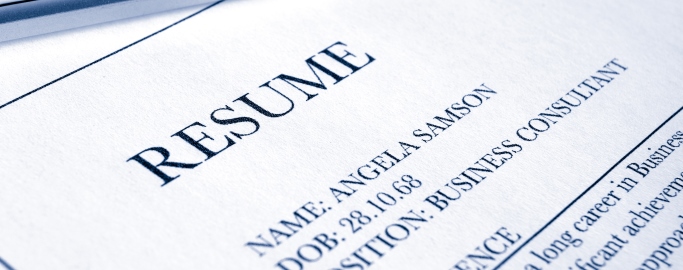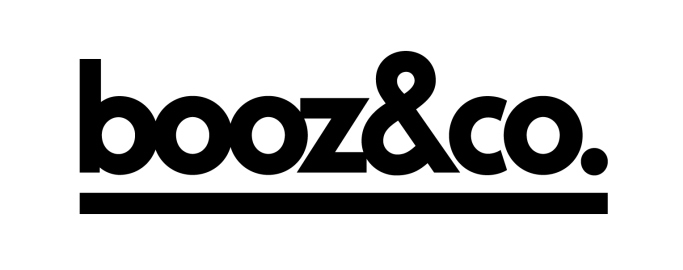
If you are applying for a position at McKinsey, you will be competing with a large number of graduates and working professionals who are also interested in breaking into the firm. Therefore, you must be able to convince recruiters to invite you to an interview. This includes submitting a McKinsey cover letter that tells the story that you are a highly motivated and ambitious applicant with a great potential.
Remember, a resume only summarizes your skills and experience, but a cover letter tells the story about you: your career plans and the fit of consulting in these plans, your personality and your key accomplishments. You need to devote ample time to crafting your letter as it can help you stand out from the pool of highly qualified candidates.
Before Writing Your McKinsey Cover Letter
Before writing your McKinsey cover letter, you need to make a list of your qualifications and accomplishments that match the skills McKinsey seek in candidates. This will help you determine which information to include in the document. Use the table below for ideas and suggestions:
| Problem-solving |
- Relevant coursework
- Consulting experience (internship or professional)
- Conducted researches
|
| Achieving |
- Accomplishments in the classroom and previous jobs
- Relevant awards and honors
|
| Personal Impact |
- Exposure to different types of people
- Volunteer projects worked on
- Spoken and written languages
|
| Leadership |
- Positions held in a community, organization, or school
- Group projects
|
McKinsey Cover Letter Structure
The cover letter should contain three to five paragraphs and the information you present should be comprehensively written. If this document exceeds one page, recruiters will doubt your written communication skills, something all management consultants should possess.
Contact Information and Salutation
There’s only one thing you need to remember in this section: accuracy. Double check your contact information as the recruiters will use it to notify you about tests and interviews. Also, don’t forget to address the letter to the correct person and his or her position at the firm. Applicants often overlook these basic facts when writing cover letters. Committing these types of mistakes will hurt your application; recruiters will be disappointed that you omitted critical details.
Introduction
This section should be interesting enough to encourage the recruiters to read the rest of your McKinsey cover letter. It should contain your objectives, the specific job title you are interested in, and how you came across the opening. In order to convey your own voice, try the following strategies:
| Networking |
Mention how a McKinsey employee has inspired you to pursue a career with the firm. However, do not namedrop just to get the recruiter’s attention; explain how the conversation moved or challenged you to pursue a consulting role. |
| Events |
Refer to an event, session, or any activity where you learned to appreciate the services and expertise of McKinsey. It can be an inspirational talk shared by a satisfied client or a lunch meeting with a key person in the industry. |
| Articles |
Cite a particular study or article written by McKinsey. State how it has motivated you to follow your management consulting dreams. |
Here’s is an example of this section:
I have learned from James Peterson, one of your managing directors that you are looking for an operations consultant for your Chicago office. During our conversation after his presentation on business transformation strategies last month, he shared his experience in addressing inefficient processes, designing marketing models, and helping clients build new capabilities. The valuable information I learned from him has reinforced my passion for this field and my entrepreneurial spirit.
Here’s is another example:
I met John Johnson at a recruiting event and he discussed an opportunity to work with the Marketing and Sales Practice management team as a Digital Expert. When I researched the position, I came across your article, “Powering Growth through Digital Advantage.” After reading it, I was convinced that CEOs should shape their marketing and sales agenda according to how digital media has influenced consumer behavior. If given the opportunity, I would like to help organizations realize, develop, and implement their digital strategies.
Middle Paragraphs
Based on your list of qualifications, choose and highlight two or three skills or accomplishments that will push your application to the top of the pile. Select the ones that are most relevant to the position. If you are an experienced professional, focus on your quantitative achievements at your previous job. If you are a recent graduate, you can talk about your coursework, extracurricular activities, and internship program. The important thing is to establish a connection between the job and your competencies.
Here is an example of this section for experienced professionals:
My three-year experience as a director at an online marketing agency has prepared me for this client-oriented role. I have developed various digital marketing campaigns using a range of techniques such as Search Engine Optimization (SEO), Pay Per Click (PPC), social media advertisements, and paid searches. I also served as a marketing partner of Bangles, a startup company that sells women’s clothing and apparel online. Two months after implementing our marketing proposal, their monthly revenue increased by 25%.
Apart from my experience, my marketing degree from the University of Colorado has also prepared me for advanced business writing, conducting market research, and analyzing consumer behavior. I believe that my technical know-how, coupled with my substantial experience, will be my key to generating marketing strategies based on the industry’s best practices and customer experience. I am confident McKinsey & Company will find my contribution to the organization’s growth valuable.
Here is an example of this section for recent graduates:
During my three-month internship at Fast Investment Bank, I helped my team in providing financial services to companies and organizations. I analyzed an investment opportunity for a private equity fund within the wind turbine sector, leading to a critical investment decision. I also developed an Excel model for the valuation using both multiple and discounted cash flow methods. This model was used by the entire team.
In addition to my internship experience, I am a Finance major from the Leeds School of Business at the University of Colorado. My college curriculum has readied me for any challenges in business analysis, quantitative methods, and organizational behavior. Despite my responsibilities as a soccer club vice-president, I graduated with a 3.9 GPA. As evidenced by my excellent educational performance, I believe I will be able to adapt to the challenging demands of your organization.
In this section, you can also talk about your motivation for applying with the firm and personal interests. Make sure to present them in a manner that’s relevant to the desired position.
Closing Paragraph
The closing paragraph revolves around you as a person. Write about what you can contribute to the organization, your passion, personal values and skills. Finally, add one more sentence that indicates your high value. Avoid writing “If you have any questions about my application, please do not hesitate to contact me” as this creates no value. If recruiters find you suitable for the job, they will find a way to contact you.
Here’s an example of the closing paragraph:
I take pride in my innate leadership potential. When I was still in university, I was an officer of the consulting club for two consecutive years. Furthermore, my former colleagues can attest to how I motivate other people to do their tasks, and involve everyone in working towards the common goal.
Looking forward to discuss the opportunities with you.
Signature
It’s essential to close your McKinsey cover letter in a professional manner. You may use the following closing examples:
- Sincerely
- Best regards
- Respectfully
- Yours truly
- Most sincerely
Also, don’t forget to attach your signature in order to add sincerity to your McKinsey cover letter. If you’re uploading your letter on the Internet, consider creating a digital signature. Just sign a piece of clean, white paper, scan it, and crop the image down to the ideal size of your signature. This will help you stand out as a professional and technically-competent applicant.
Review Your Cover Letter
Before sending out your McKinsey cover letter, review its content and structure. If you know someone who is qualified and willing to check it for you, ask for his or her objective feedback. After reviewing the document, ask yourself the following questions:
- Is the content relevant and interesting enough to pique the interest of the recruiter?
- Does it convey the value I can contribute to the firm?
- Are my ideas or qualifications presented in a smooth and comprehensible manner?
- Does it look reader-friendly?
- Is it free from spelling, grammar, and punctuation errors?
If you answered “yes” to all of these questions, you can submit your McKinsey cover letter with your resume and other required documents.
You Might Also Like...









